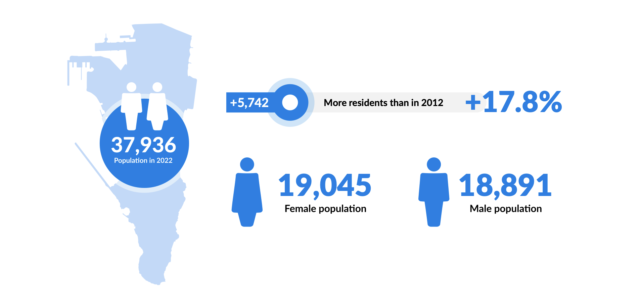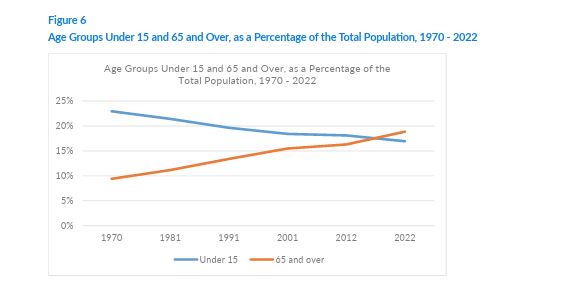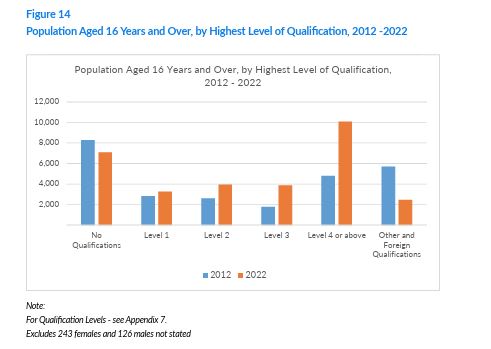Gibraltar census shows sharp rise in over 65s as population ages and grows to 37,936
Photo by Johnny Bugeja.
The number of residents aged over 65 on the Rock has increased by more than a third, Gibraltar’s 2022 census has found, highlighting the challenge for the delivery of public services as people live longer lives.
The 528-page census was laid in Parliament on Wednesday morning detailing Gibraltar’s population growth and density changes, as well as highlighting its ageing population.
Its publication comes three years after the survey was held and provides the government with a snapshot of local trends from health and education to transport and travel.
The total resident population has grown by 53% in 52 years to 37,936 inhabitants, with the majority of this growth – 43% of the total – occurring between 2012 to 2022.

But the most notable rise has been the oldest local demographic.
The number of persons aged 80 and over has sharply risen by 423.3% over 52 years, from 339 in 1970 to 1,774 in 2022.

According to the census the population has grown on average by some 562 people (+1.6%) a year between 2012 and 2022.
This growth is in part due to an increase in net births, but also as a result of the economic growth, the subsequent increased employment opportunities and the substantial influx of labour from overseas.
Constituency MP for senior citizens and the Minister for Economic Development, Sir Joe Bossano told the Chronicle that an ageing population is a global phenomenon and not unique to Gibraltar.
Sir Joe explained that the labour force locally is supplemented by the movement of cross-frontier workers into Gibraltar, adding that this means an ageing population is not of great concern when it comes to the workforce.
Unlike other countries, Sir Joe also pointed out that Gibraltar’s birth rate is not in a negative trend.
The census has found that there are more people in the under 15 age group compared to the last census in 2012, but as a proportion of the population the group has fallen by 1.2%.
“Gibraltar’s population is ageing, as indeed so many other countries, with implications for pensions, benefits and Government services,” the report noted.

Sir Joe said that technological advances in AI will change the labour force in the future, which could result in a “reducing demand for labour”.
He said the speed at which change is taking place is accelerating and technology could increase productivity, adding that Gibraltar “always has a shortage of [local] labour” which is why cross-frontier workers supplement the local labour force.
In terms of the population figure, Sir Joe said Gibraltar has seen its “biggest decade of growth” and underscored that uncontrolled growth could impact public services.
He highlighted that the Government has made steps to control population growth, pointing out how residency applications were recently suspended after a sharp increase in demand, a move that has nonetheless proved controversial.
The census also found that number of people living in permanent care institutions had increased by 24% compared to 2012.
However, proportionally when compared to the population increase in this age range, in fact those residing in care had decreased from 4% in 2012 to 3.6% in 2022.
The census said that the decrease may be explained by the provision of domiciliary care services and home support which enable elderly residents to remain living independently for longer.
EDUCATION
With university scholarships available to residents, the number of Gibraltarians with degrees and professional qualifications has surged.

One in three adults in Gibraltar had high level qualifications, an increase of 110.4% in 10 years.

This, juxtaposed with economy activity in the younger age range, highlights the take-up in education as fewer people aged 15 to 24 years old are economically active than in 2012.

Reflecting the increased focus on education, this sector also grew the most.
The number of people employed in the education sector grew by 78% in terms of those in full-time employment.









